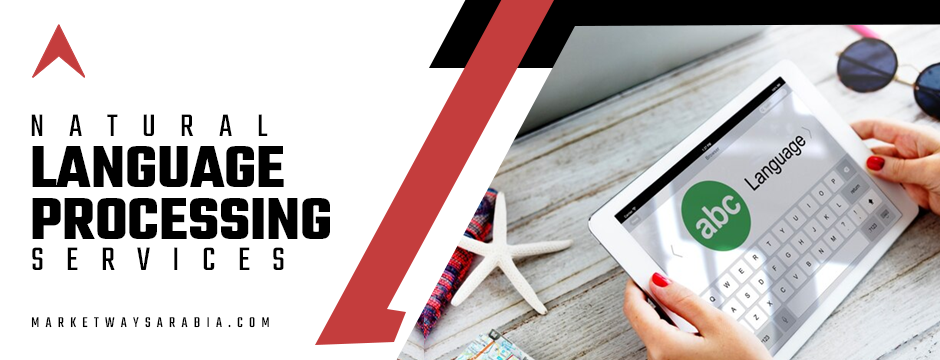This checklist for conducting Business Feasibility Study from Marketways Arabia is based on our expertise and is useful in evaluating your business ideas.
This Business Feasibility Checklist will help entrepreneurs to screen out ideas that are likely to fail before investing extensive time, money and effort in them.
For successful economic growth , new and innovative business need to emerge regularly. Unfortunately, the success rates for survival of small businesses are typically low with the estimated chances of a new business surviving for five years being less than 50 percent.
As an entrepreneur, perhaps the most crucial problem you will face after expressing an interest in starting a new business or capitalizing on an apparent opportunity in your existing business will be determining the feasibility of your idea. The high failure rate of new businesses indicates that very few ideas prosper into successful business ventures.Hence it is crucial to conduct a through Business Feasibility Study professionally .
What is Business Feasibility Study?
The business feasibility study is conducted during the deliberation phase of the business development cycle prior to commencement of a formal business plan. It involves gathering, and analyzing all relevant information to with the objective of evaluating the basic purpose i.e “Should I go into this business?”
How to plan your Business Feasibility Study
- Briefly describe the business you want to enter & list the products and/or services you want to sell.
- Describe who will be your target market that is who is likely to buy your product or services.
- What is the USP of your product/service & why would someone buy your product/service?
- What kind of location or Reach do you need in terms of type of neighborhood, traffic count, geographical territories etc.
- List your major competitors – those who sell or provide similar products/services.
- List the labor and staff you require to provide your products/services.
Consider each of the following Business Feasibility Study component in depth
Market Opportunity Analysis
To determine whether your idea meets the basic requirements for a successful new project, you must be able to answer at least one of the following questions with a “yes.”
- Does the product/service/business serve a presently unserved need?
- Does the product/service/business serve an existing market in which demand exceeds supply?
- Who are the main current and potential competitors, their strengths and weakness and their positioning
- Can the product/service/business successfully compete with existing competition because of an “advantageous situation”, such as better price, location, etc.?
Potential Flaws or Threat Analysis
A “Yes” response to questions such as the following would indicate that the idea has little chance for success.
Are there any causes (i.e. restrictions, monopolies, shortages) that make any of the required factors of production unavailable (i.e. unreasonable cost, scarce skills, energy, material, equipment, processes, technology, or personnel)?
- Are capital requirements for entry or continuing operations excessive?
- Is adequate financing hard to obtain?
- Are there potential detrimental environmental effects?
Are there factors that prevent effective marketing?
Market and Customer Estimation
Based on the above Market and Threat Analysis
- What do you estimate your target market and customer volumes to be
- What is estimated customer Volumes for different price levels
- What is the service/quality level and other conditions/terms needed to attract these volume of customers to buy from you
- How the customer Volumes may change in case of change in any of these conditions/terms
- Is there any impact of seasonality or cyclic customer behavior in the volume estimates
Suppliers Availability, Credentials & Terms
To satisfy the demand of above estimate volume of customers, what supplies and delivery mechanisms you will need?
- Can you make a list of every item of inventory and operating supplies needed?
- Do you know the quantity, quality, technical specifications, and price ranges desired?
- Do you know the name and location of different potential source of supply?
- Do you know the price ranges available for each product from different suppliers?
- Do you know about the delivery schedules for suppliers?
- Do you know the sales terms of suppliers?
- Do you know the credit terms of suppliers?
- Do you know the financial condition of suppliers?
- Is there a risk of shortage for any critical materials or merchandise?
- Are you aware of which suppliers have an advantage relative to transportation costs?
- Will the price available allow you to achieve an adequate markup?
Cost Estimation
- For the above estimated level of customer Volumes , What your business operations expenses will be ie for material/Service cost, rent, wages, insurance, utilities, advertising, marketing, interest, transportation etc.?
- Do you need to know which expenses are direct, indirect, or fixed?
- Do you know how much your overhead will be?
- Do you know how much your selling expenses will be?
- What other Miscellaneous expenses?
Potential Risks
- Are you aware of any major risks associated with your product, service and/or business?
- Can you minimize any of these major risks?
- Are there major risks beyond your control?
- Can these risks bankrupt you?
Estimated Revenue & Income
The following questions should remind you that you must seek both a return on your investment in the business as well as a reasonable salary for the time you spend in operating that business.
- How much revenue and Income you can estimate in the first 2-3 years.Calculate it carefully by estimating
- The number of customers you can expect
- The price/discounts you may need to sell at
- Cost of Business ie staff, marketing, Manufacturing/service, transportation costs etc
- Cost of Capital
- Any Tax, Government Charges or other Business Fees
- Any other relevant cost and factors
Remember revenue is NOT income. Income or Profit is amount which is remaining after all costs are taken out from the total Revenue. Most new entrepreneurs make the mistake of considering Revenue as their income and suffer due to cash-flow problems.
Estimated Financial Investment and Returns
- What financial investment will be required for your business for :
- Initial Set Up
- Running Operation Costs for at-least Six Months or more
- Cash Flow for an adequate period of time
- Any other relevant factors
- How much could you earn by investing this money elsewhere? (A)
- How much could you earn by working for someone else? (B)
Add the amounts in (A) and (B). If this income is greater than what you can realistically expect from your business, are you prepared to forego this additional income to be your own boss with the prospects of more substantial profit/income in future years? Please do consider what is the minimum income you will need for Business and Personal requirements.
Information and Data Sufficiency
Before you take the final decision , check whether the information and data you have gathered is sufficient, accurate and relevant. Consider
- Are there any major questions remaining about your proposed venture?
- Do the above questions arise
- because of a lack of data?
- because of a lack of management skills?
- because of a “fatal flaw” in your idea?
- Can you obtain the additional data needed?
- Can you obtain the additional managerial skills needed?
- Are you aware that there is less than a 50-50 chance that you will be in business two years from now?
Based on the complete check-list and your estimates and answers for Business Feasibility Study component, you can arrive at the final answer whether the Business Idea is feasible or not in general and in specific for you.
There is no fixed formula to work out the Business Feasibility in terms of how much investment, returns or income should be . Many a business have flourished due to Passion, Innovation and Resourcefulness of the Entrepreneur so you have to eventually take a risk and make the decision. However following the Business Feasibility Checklist in a structured manner will ensure that the risk you take is calculated and you do not counter many unforeseen surprises.
Hope you found our views on a business feasibility checklist useful! Stay tuned for more management and research tips to make your business vision a reality!




